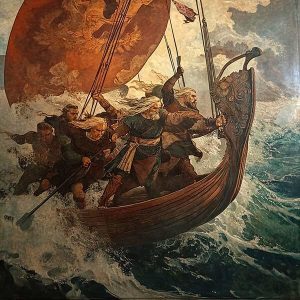What Mythology Teaches Us
Mythology is a collection of stories, songs, poems, or myths that portray a cultural heritage or belief. Lore encompasses mythology and explains traditions, beliefs, and knowledge from a cultural group. Mythology varies between cultures but generally describes a set of beliefs that can include the following topics:
Creation Stories
Creation stories exist in every culture and often help us to understand how people from different regions perceive the world.
Cultural Traditions
Cultural traditions, festivals, celebrations, and rituals reflect societal values and cultural traditions.
Lessons of Morality
Ethics and morality teach lessons about what society values and disdains and which traits are most desirable.
Religious Beliefs
Examining deities, rituals, and heroes cultivates religious identities and shapes people’s moral views.
Perception of Nature
Humanity’s perception of nature varies between cultures; myths and lore often portray struggles between humans and nature.
Cycles of Life
Birth and the afterlife are just two stages in the cycle of life. Lore and myths help detail perceptions of life cycles.
Importance of Ancestral Lore
While mythology narrates stories about gods, cosmic origins, and sacred values, ancestral lore generally focuses on localized beliefs within a community.
Sharing cultural lore is an essential facet of understanding the human experience. Beliefs passed down between the generations help understand how cultural identity developed, evolved, and adapted through human history. This knowledge also helps establish:
Heritage Preservation
Passing down stories through oral and written traditions enables the preservation of knowledge of a culture and society.
Community Bonds
Shared narratives establish a basis for ideals and values within a community, creating a sense of bonding and unity.
Cultural Empathy
Ancestral lore often outlines a community’s struggles, morals, and aspirations, building empathy within and between cultures.
Diversity Celebrations
Stories from the past help establish culture and examine various ways to perceive the world. Through these lessons, others can learn about different perspectives of the world.




